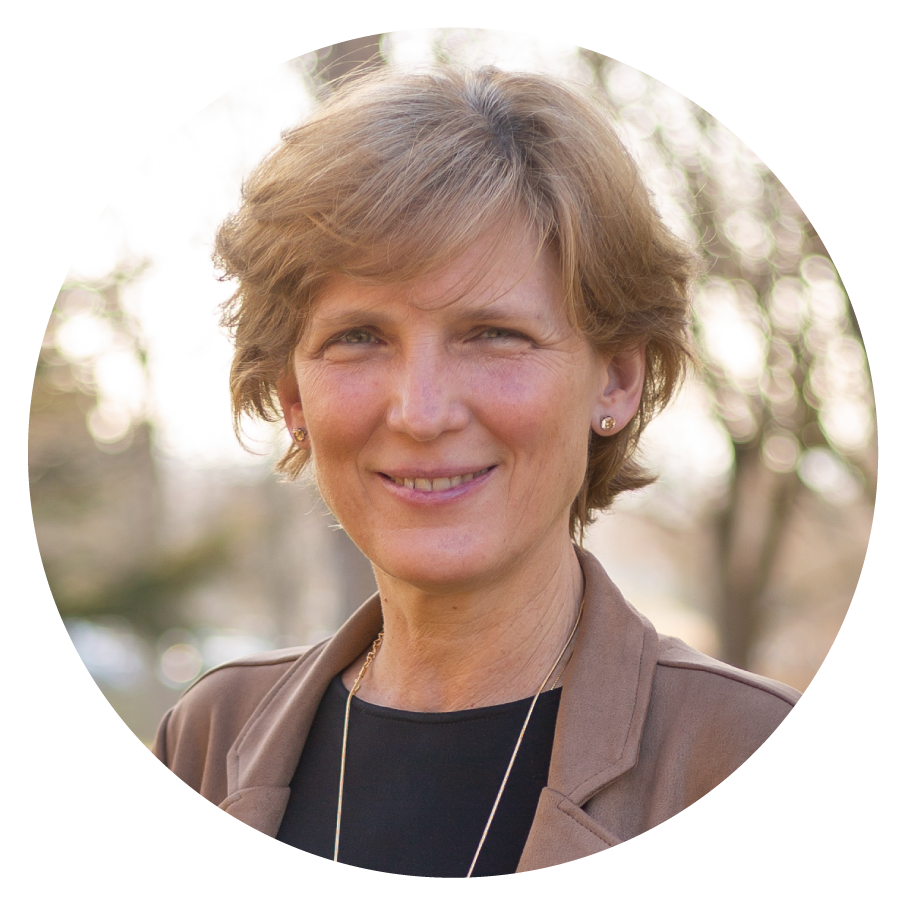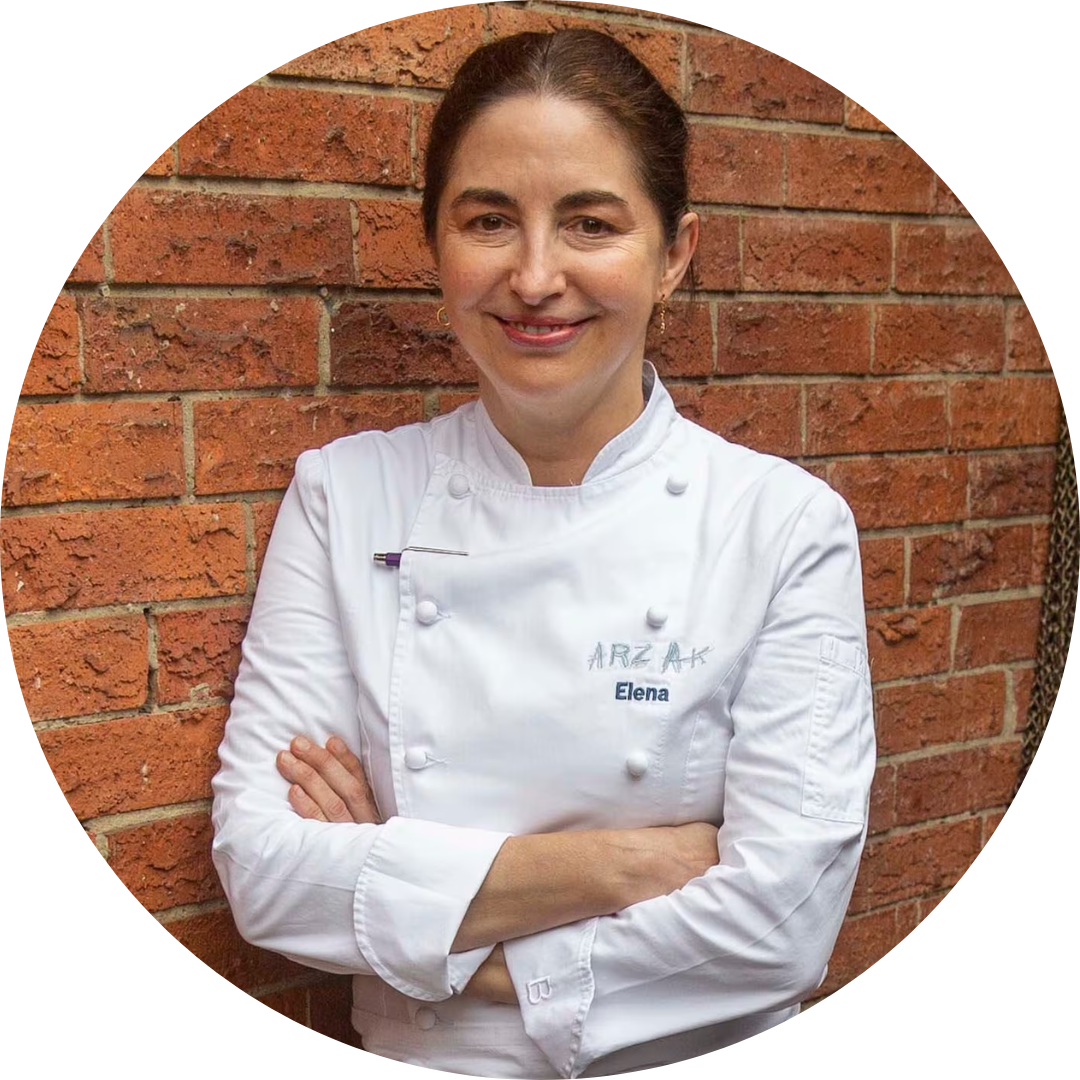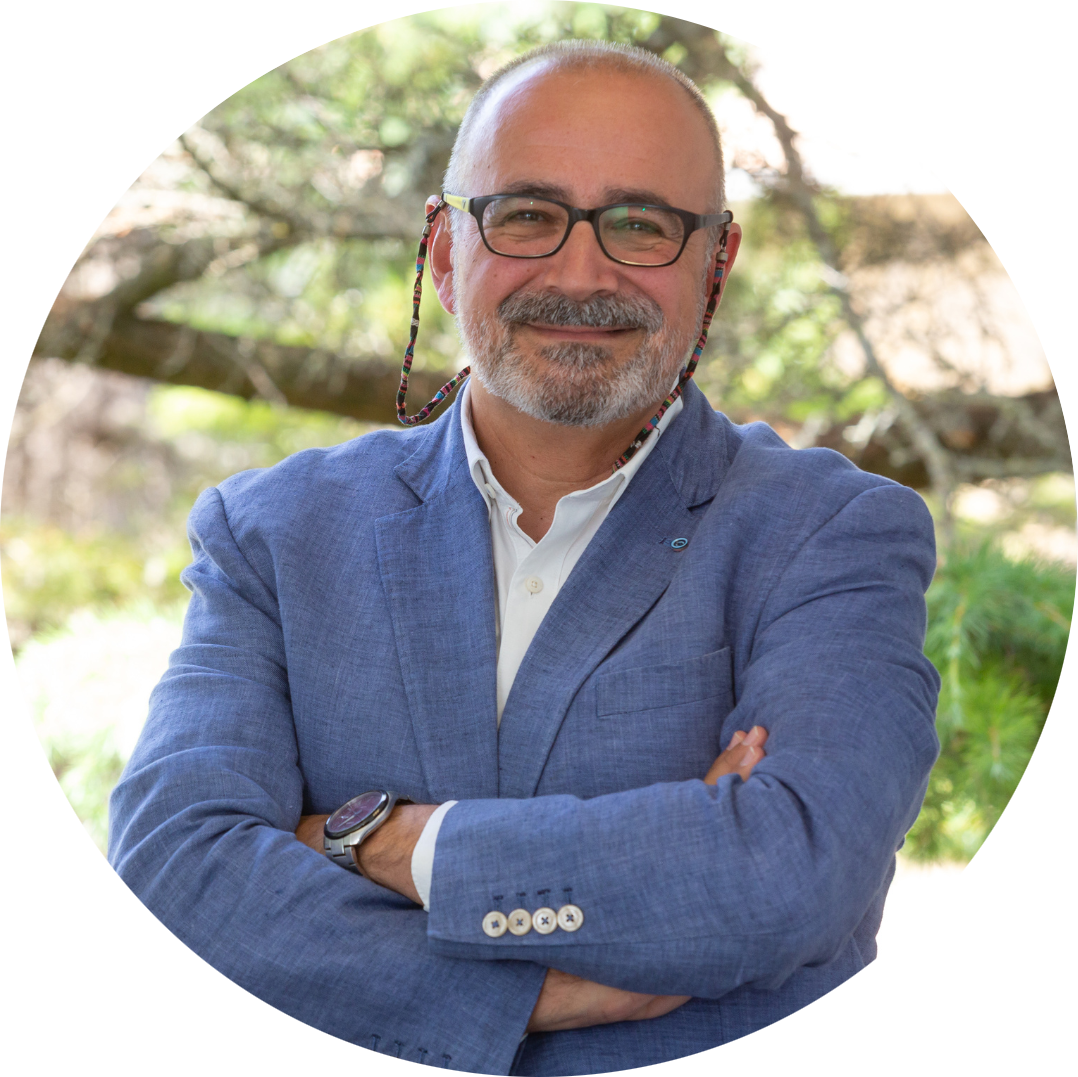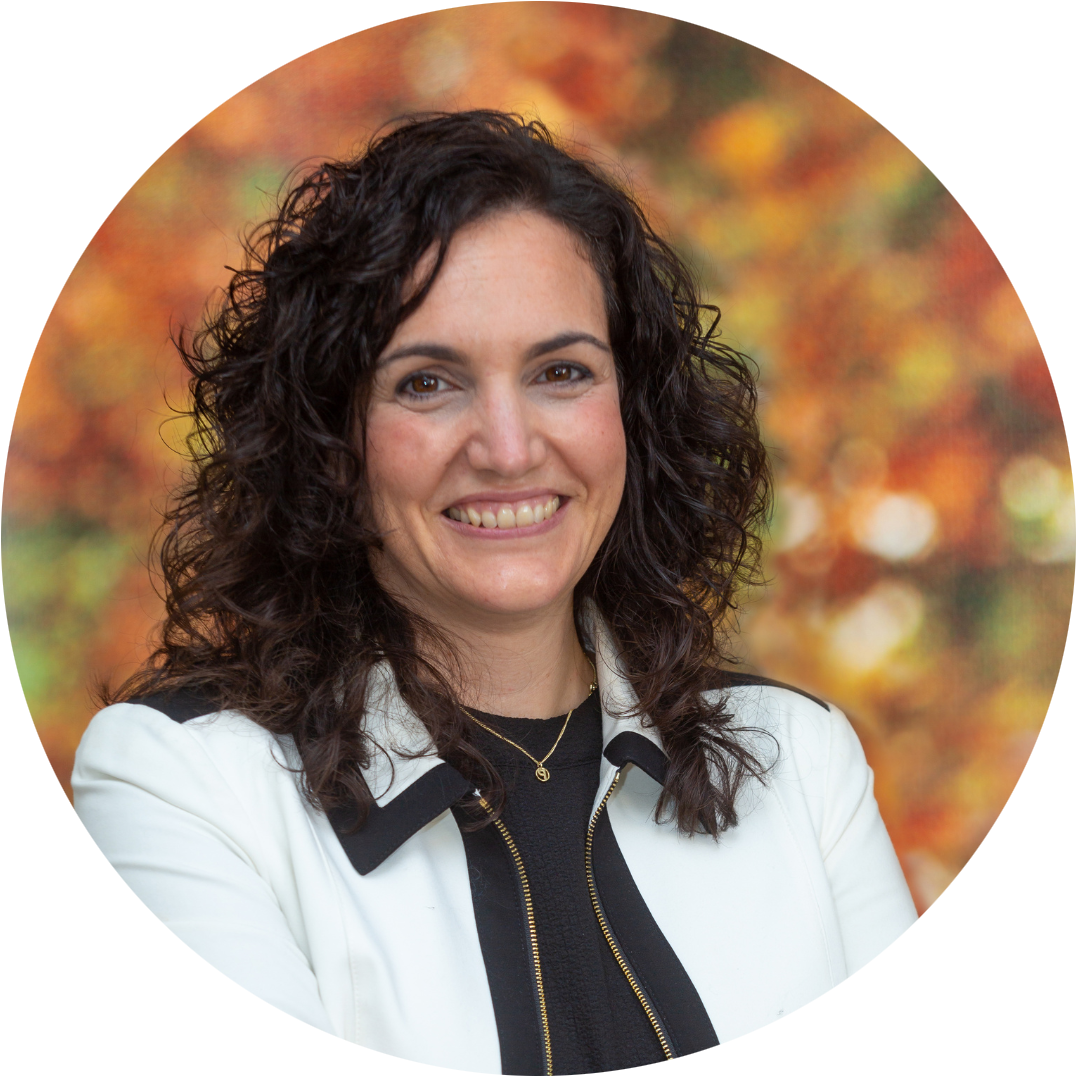Alumni Meetings 2025
As in those days of class, but in your city.
Every day we see how rapidly society is evolving. Advances in technology, global challenges, new generations, environmental crises... new questions always arise. How can we better understand this ever-changing world?
This is what we seek in the Alumni Meetings: an open community, where different areas, opinions, generations and ways of seeing the world come together. A time to reflect on social transformation and contemporary challenges. . Like in those days of class at the University, but in your city.
This year, the Alumni Meetings will address topics such as global health and research, the search for talent for innovation, the challenges of technology, and the future of gastronomy.
Innovation needs talent, and talent requires training and purpose. María Iraburu (BIO'87 | PhD'92) , president of the University of Navarra, will reflect in this session on the role of the university as an enabler of talent and an engine of social and industrial development . The event will open a space for dialogue with Fernando Echániz (TECNUN'13 | MII'15), industrial engineer, on how leaders seek innovation to generate impact on companies and society.
"The university and business in search of talent for innovation"

María Iraburu
(BIO'87 | PhD'92)
President of the University of Navarra
Basque culinary tradition has undergone a fusion with modern and innovative techniques. Under the guidance of chef Elena Arzakwe will delve into a way of understanding gastronomy that combines creativity, research, development and sustainability, creating unique gastronomic experiences that celebrate both the past and the future of cuisine.
"Arzak: innovative and avant-garde Basque cuisine".

Elena Arzak
Chef
Climate change and environmental degradation are crucial challenges to global health. Ignacio López Goñi (BIO'85 | PhD'89), Full Professor of Microbiology and director of the Science Museum of the University of Navarra, and Patricia Pérez Matute (BQM'00 | PhD'05), dean of the School of Health Sciences of the University of La Rioja, will address the new strategy to face these threats and protect the health of the next generations.
“Global health: the new strategy to face the environmental threat”

Ignacio López Goñi
(BIO'85 | PhD'89)
Full Professor of Microbiology. Director from the Museum of Sciences of the University of Navarra

Patricia Pérez Matute
(BQM'00 | PhD'05)
Dean of the School of Health Sciences of the University of La Rioja
The partnership between University and business is core topic for innovation and development . Maria Iraburu (BIO'87 | PhD'92), president from the University of Navarra, will analyze the challenges and opportunities of this relationship, highlighting its impact on the training , the research and society.
“University and business : challenges and opportunities”

María Iraburu
(BIO'87 | PhD'92)
President of the University of Navarra
Solidarity is a fundamental pillar for social transformation. Paloma Grau (PhD'04), Vice President of research and Sustainability of the University of Navarra, will explore how cooperation and commitment can drive change, with special attention to the role of the University in promoting solidarity and sustainable initiatives.
“Solidarity as a driving force for change”

Paloma Grau
(PhD'04)
Vice President of research and Sustainability of the University of Navarra

Alfredo Montoro
(MED'09)
General Director of IMED Colón Hospital

María Furió Rodríguez
(IESE PDD'24)
Family Up Foundation and Social Action manager at DANA

José María Badía García
(IESE PDD'07)
General Director at Afin SGR
In a technology-driven world, the role of the University remains essential in generating research and training leading. Maria Iraburu (BIO'87 | PhD'92), president from the University of Navarra, will reflect on the value of Education superior in the digital age and its contribution to development of the knowledge and society.

María Iraburu
(BIO'87 | PhD'92)
President of the University of Navarra
Trends that will transform our society
Sustainability is a disruption in our society. How should countries, companies and institutions act in the face of this challenge? Four experts from different sectors reflected on the future of sustainability at the Alumni Meeting in Madrid at the roundtable "Deciphering sustainability: Economics, work and future", moderated by Alberto Andreudirector of the University of Navarra's Master's Degree on Sustainability.
The emergence of Artificial Intelligence brings many uses and benefits to society. At the same time, it raises many ethical questions. What risks does society take with the development of this tool? What ethical challenges do we face and how can we address them?
At the Alumni Meeting Gipuzkoa, Idoia Ochoa (TECNUN'08), an expert in the field of emerging technologies, and Rubén Armañanzas, from the Institute of Science of the data and Artificial Intelligence (DATAI), brought us closer to this topic.
The digital era has brought about a profound transformation in the way professions are practiced. What is the nature of these changes? How do they affect development staff and social ?
In the Alumni Meeting in Zaragoza, with the participation of Ricardo PiñeroFull Professor at the University of Navarra, we delved into the meaning of work in the contemporary world. In addition, we had the presence of president, María Iraburu (BIO'87 | PhD'92).
Advances in research and oncology innovation have a health, economic and social return. The International Agency for Research on Cancer estimates that the issue number of cases will increase in the coming decades to 28 million new diagnoses per year.
What are the main advances in the study of cancer? To what extent can the development of new technologies help in the prevention or early detection of the disease? What role does personalized medicine play?
At the Alumni Meeting in Seville, Dr. Bruno Sangro Dr. Bruno Sangro (MED-PhD'94) and Dr. Miguel Angel Dr. Miguel Angel Idoate (MED'82 | PhD'87) helped us to learn more about cancer.
The University traveled to Mexico with Alumni to continue on contact with its alumni and to close the Alumni Meetings 2024.
This event was also attended by the University's president , María Iraburu (BIO'87 | PhD'92).
